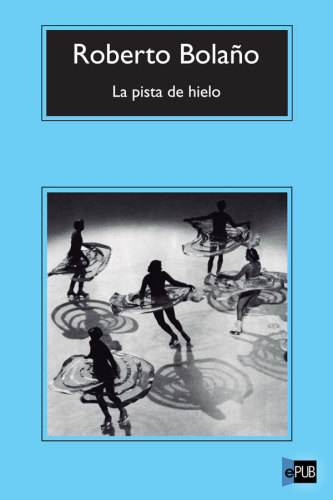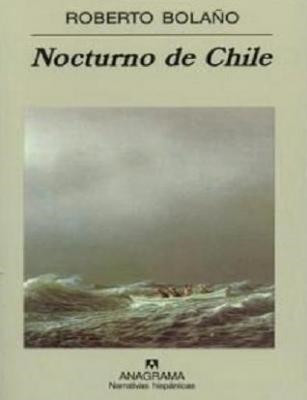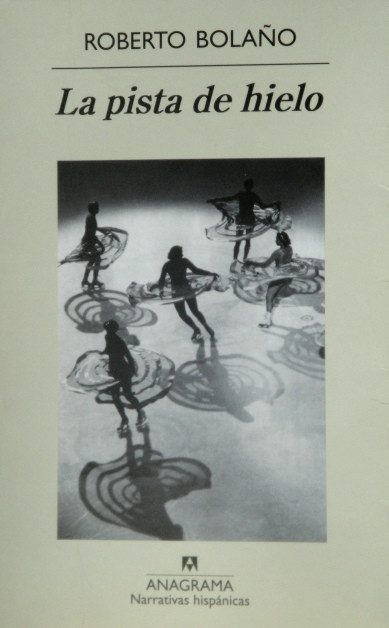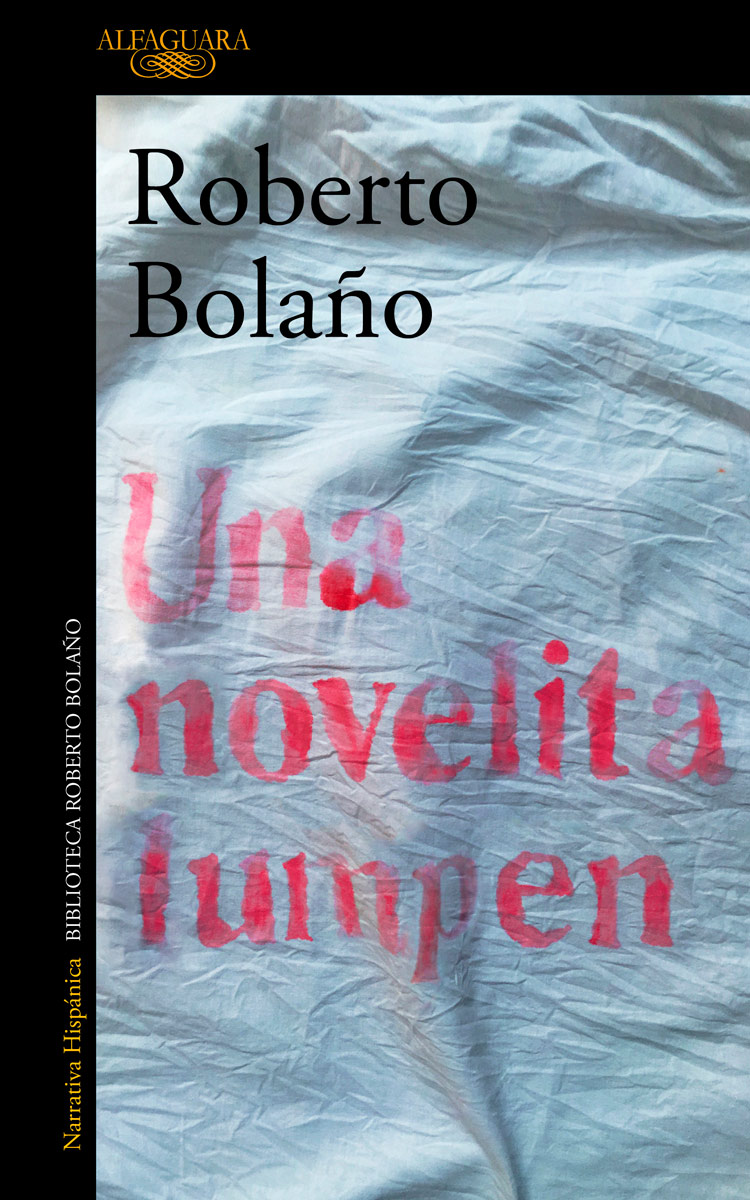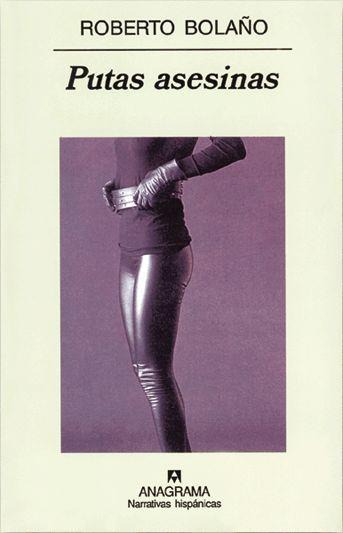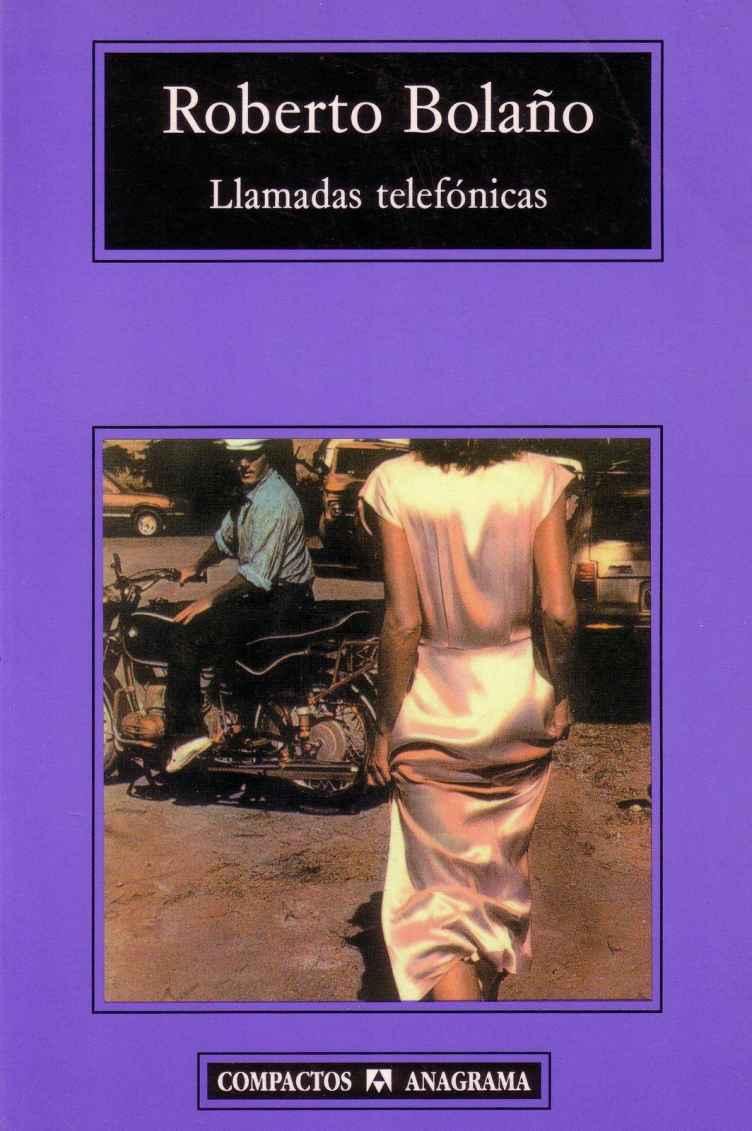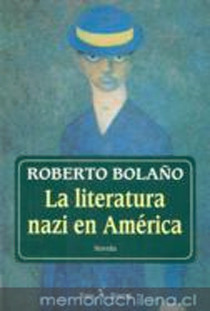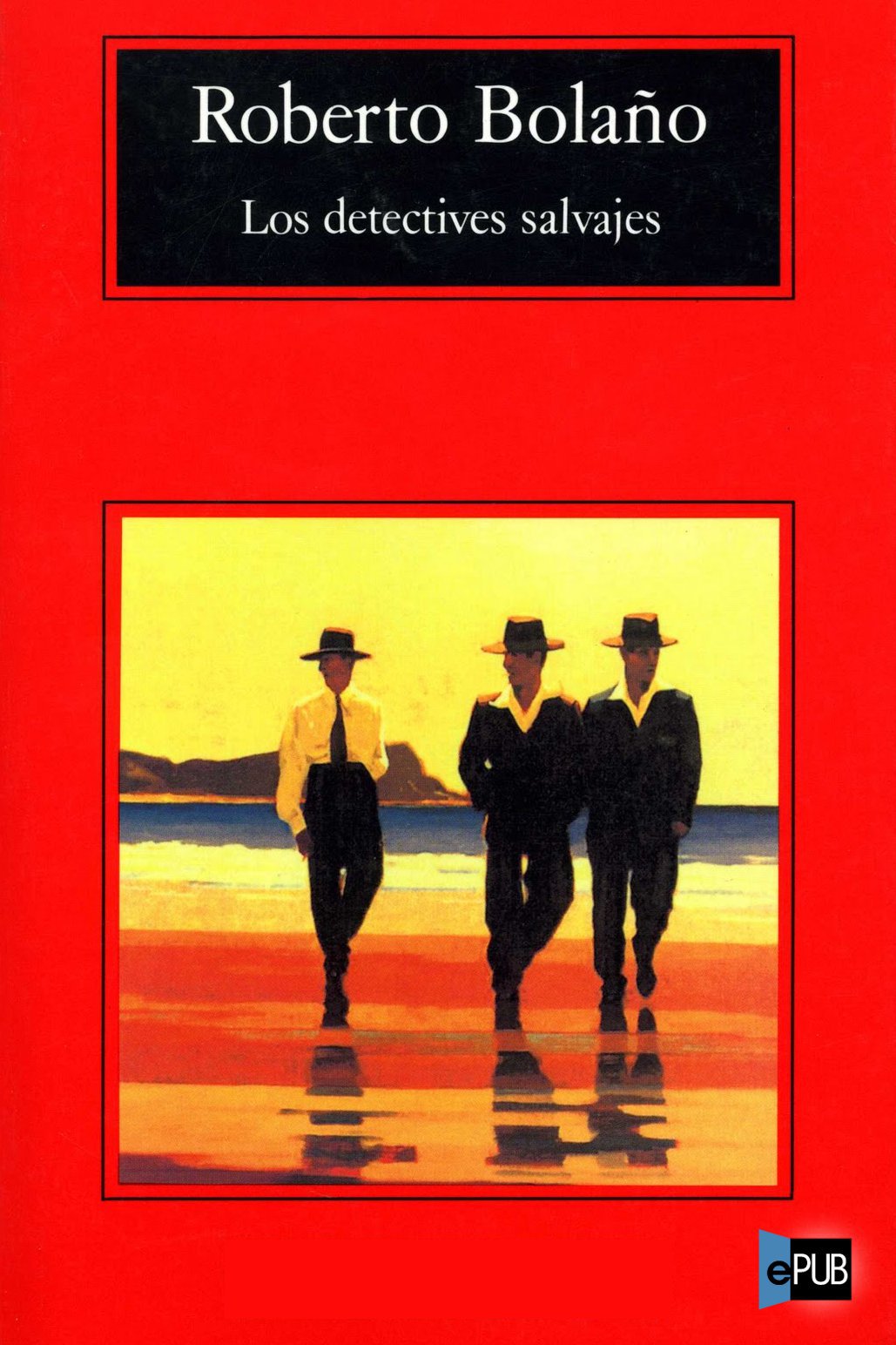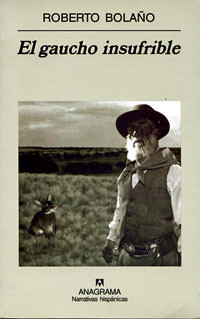oleebook.com
2666 de Bolaño, Roberto
de Bolaño, Roberto - Género: Ficcion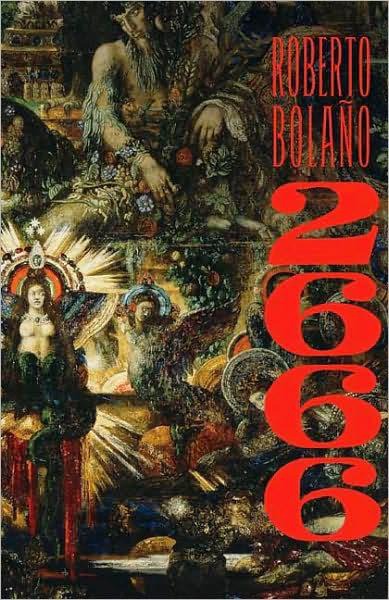
Sinopsis
Asombroso alarde de audacia y de poderío narrativo, 2666 se propone como una nueva y revolucionaria modalidad de novela total. Roberto Bolaño (1953-2003), es uno de los escritores latinoamericanos imprescindibles de nuestro tiempo. A cuatro profesores de literatura, Jean-Claude Pelletier, Piero Morini, Manuel Espinoza y Liz Norton, los une su fascinación por la obra de Beno von Archimboldi, un enigmático escritor alemán cuyo prestigio crece en todo el mundo. Su complicidad adquiere trazas de vodevil intelectual y cosmopolita con ménage à trois incluido, y desemboca en un disparatado peregrinaje a Santa Teresa (trasunto de Ciudad Juárez), donde hay quien dice que Archimboldi ha sido visto.
Descargar
Descargar 2666 ePub GratisLibros Recomendados - Relacionados
Reseñas Varias sobre este libro
My reading list for the next few weeks/months.
Defines maximalist novels through ten elements:
1. Length
2. Encyclopedic mode
3. Dissonant chorality
4. Diegetic exuberance
5. Completeness
6. Narratorial omniscience
7. Paranoid imagination
8. Intersemioticity
9. Ethical commitment
10. Hybrid realism
Ercolino's study uses Tom LeClair's system novels, Franco Moretti's world text and Frederick R. Karl's Mega-Novel as the basis for his definition of the maximalist novel. This is definitely required reading for anyone interested in po-mo fiction.
_________________
Copied from below:
Ercolino's choice of texts are a subsumption of the efforts of of LeClair, Moretti and Karl. LeClair chose Gravity's Rainbow, Something Happened, J R, The Public Burning, Women and Men, LETTERS and Always Coming Home for his System Novels or systexts; Moretti looks at the "Modern Epic" in the vein of "Faust, Moby-Dick, The Nibelungs Ring, Ulysses, The Cantos, The Waste Land, The Man Without Qualities, One Hundred Years of Solitude" (p. 1); and Karl is concerned with the Mega-Novel in America, singling out Gaddis' The Recognitions as an archetypal form.
Ercolino's choice of texts are a logical conclusion to the efforts of these preceding analyses. There's the quintessential text of Postmodernism and Maximalism a, Gravity's Rainbow; its modern equivalent, Infinite Jest; The Corrections as the possibly best known Maximalist text for the "common" reader; White Teeth and 2666 as "minority texts", one from a woman (which is rather rare in that genre, as Karl, LeClair, Ercolino and Nathan (hi!) have already noted), the other from an author writing in Spanish; Underworld is, in my opinion, a spiritual successor of Gravity's Rainbow, transporting the setting from WW2 to the Cold War; and, finally 2005 dopo Cristo, an example from Italy, unfortunately still untranslated.
There's of course a slew of similar texts; Ercolino's categories are luckily not as restrictive as Mendelson's criteria for encyclopedic narratives (according to him, every culture produces only one encyclopedic author (eh), attempts to render the full range of knowledge and beliefs of a national culture, evolves out of the epic (Moretti's approach heavily borrows from Mendelson), is an encyclopedia of narrative forms and styles (similar to the postmodern pastiche), are polyglot books and include giants or gigantism (...sic).). He identifies Dantes Divine Comedy, Cervantess Don Quixote, Rabelaiss Gargantua and Pantagruel, Goethes Faust, Melvilles Moby-Dick, Joyces Ulysses and Gravity's Rainbow as the central texts of encyclopedism.
As you can see, this is a huge topic. In my opinion, Ercolino's text is the first to offer a conclusive approach to the Maximalist genre, incorporating several prior ones to formulate a framework which can easily be adapted to other texts of the genre (which I'm currently doing for a thesis on Alexander Theroux's Darconville's Cat; the discussion of Maximalism besides Intertextuality (Bakthin, Kristeva, Bloom, Hutcheon et al.) are my two major theoretical approaches for a discussion on the novel's themes (Love, Hate, Revenge, Polyglossia, Menippean Satire / Learned Wit / Encylopedism etc.). read-in-english reference staatsexamen_research ...more29 s Ian "Marvin" Graye897 2,373
Ten Systematically Co-Present and Reciprocally Articulated Characteristics of Seven Maximalist Works (I Read for My Supposedly Fun Thesis)
"These ten characteristics are common to all of the seven works that centre his discussion."
"Though the ten features are not all present in the same way or form in every single text, they are all decisive in defining the genre of the maximalist novel, insofar as they are systematically co-present."
"Taken singularly, they can be easily found both in modernist and postmodern novels, which are not maximalist. Nevertheless, it is precisely their co-presence, as well as their reciprocal articulation, which make them fundamental in demarcating the maximalist novel as a genre."
A marvel of minimalist brevity at 208 pages!
GUEST RANT BY MURRAY JAY SISKIND (RETD)
A Whopper with Fries
Whatever they say about things being taken singularly, you can't have a whopper without fries.
For obvious (if not self-evident) reasons, this truism applies equally to the maximalist novel.
Some manifestations of the maximalist phenomenomenon come with their own Foot- and End-Notes by the Author.It would probably be a mixed metaphor to refer to them as "Foot-Note Long Subs"!
However, the maximalist novel creates an ideal opportunity for a captive third party to write and publish Annotations.
And not just one edition, they have to be updated as other readers find connotations and allusions you hadn't recognised on your cursory first inspection! Especially if this is one of only a few books you've ever read!
Upgrade Your Meal with a Drink
Of course, what is a meal without a drink?
The maximalist novel just has to be endlessly explicated, essentially because notwithstanding the Foot-Notes, End-Notes and Annotations, nobody can agree on what it really means.Or if you don't believe in meaning, what it is referencing.
This is a job for academia! We need learned opinions and lots of them!
Hence, the quintessential maximalist novel inspires decades of PhD theses by (usually white male not to mention those who would imitate them) readers hoping to convert their fandom into an academic career.
Of these, a select few are privileged to have their thesis elevated to hush book form in its own right, often published by a university press with a generous introduction by a supervisor who is equally generously thanked in the Author's Preface and Acknowledgements, not to mention cited in the Bibliography.
Super Size Me, Maximus!
The overloaded maximalist novel promises to be an economic booster and metafiscal stimulus that will single-handedly kick-start a revival of our ailing and anaemic groves of academia all the way from America to South Korea via Woolloomooloo.
And so it shall come to be that mastering just one truly great maximalist novel (let alone seven!it's encouraging that there are now so many to choose from, that you don't have to read anything else!) will be sufficient foundation for a whole recurring and circuitous lifetime of tenure, hubris, conferences, guest lectures, blogs, discussion groups and YouTube appearances...
...and thusly shall our bloated academia supply the unlimited refills that complete our happy maximalist meal!
"In conclusion, I say unto you (and deep inside your hearts, you know it is true), Elvis lives, and he walks among us! a really big thing surrounded by lots of tiny little things!"aaa-to-re-read cul-poli-phil-art lit-krit ...more16 s Mattia RavasiAuthor 5 books3,636
An interesting and passionate study of a genre that everybody knows, but no one can very well define. Some very interesting reflections and an author who's clearly passionate about the topic, yet the selection of novels is doubtful (The Corrections, seriously? And why not Freedom then? And who the hell is Babette Factory? ecc ecc), and once every three pages I found myself saying out loud "that's not true at all!" ("language is not a central concern in Underworld"(!?!?!), "Gravity's Rainbow, Underworld and Infinite J have the same weight in the literary canon" (!?!?!)).
Read it if you're into this kind of books, but only after you've read (at least) most of them, so you'll recognize facts and opinions.6 s E. C. Koch374 23
I'm not totally in love with this book even though I am totally in love with its subject. Reading this I got the sense that Ercolino might have had a gun to his head as he was typing because what he offers is simultaneously critically important and lifeless. What I mean here is that, even by crit./theory standards, E. seemed to have fallen out of love with his subject in the lead-up to writing one of the first (am I right about this?) exegeses on maximalism, and I guess I was hoping for exuberance here. The book suffers in other ways too. Frequent typos notwithstanding, I thought E. tried writing about too many common elements (ten) and too few exemplary texts (seven) which had the effect, on me at least, of sometimes forcing commonalities and at other times overgeneralizing. So, with acknowledged irony, I thought that this was too short. His best work here was in chapter nine ("Ethical Commitment") in which E. draws up themes for all seven of his chosen novels and then expands on the common theme of "drugs," and even though each text was cited as sharing this theme, not all were discussed in the chapter. If I was his editor I would have grown this chapter to 200 pages and scrapped the rest because, really, more drugs is exactly what this book needs.4 s Tyrone_Slothrop (ex-MB)725 100
Di libri grandi e grossi
Un saggio interessante che fa un aggiornamento dello stato dell'arte della critica rispetto al tema dei libri di dimensioni corpose - Ercolino prende le mosse (e, a dire la verità, segue molto da vicino lungo tutta la trattazione) dal testo fondamentale di Franco Moretti Opere mondo riducendo il campo ai "romanzi" e considerando 7 titoli esemplari. Sull'analisi degli elementi comuni e riferendosi sempre ai lavori teorici precedenti, viene identificato un decalogo a cui il "romanzo massimalista" dovrebbe rispondere:
lunghezza, modo enciclopedico, coralità dissonante, esuberanza diegetica, compiutezza, onniscienza narrativa, immaginazione paranoica, intersemioticità, impegno etico, realismo ibrido.
La lettura è agevole e il libro merita sicuramente attenzione, anche per il fatto di riassumere in modo approfondito lo stato del dibattito professionale - mi è servito per conoscere anche i concetti di "Mega- Novels" di Frederick Kark e le "Systems Novel" di Tom LeClair.
In sostanza Ercolino propende per una situazione più fluida e sfumata di una categorizzazione rigida, dove i romanzi possono avere alcune caratteristiche massimaliste e dove si vede una ibridizzazione tra romanzi e "opere mondo" alla Moretti. E si tenta anche di superare la stanca dicotomia minimalismo/massimalismo per dare una visione più complessa e stratificata della letteratura contemporanea.
Però in certi passaggi Ercolino mi pare scivolare in excusatio non petita quando si imbarca in un strana contestazione di accuse di "non realismo" per questi romanzi, inventandosi un oscuro concetto di "realismo ibrido" e finendo per appoggiarsi ad una risposta di DFW molto più chiara sull'inutile concetto di realismo. O quando insiste per definire una "compiutezza" del romanzo massimalista che finisce per essere una questione di lana caprina: l'incompiutezza può anche essere una qualità di un testo se inteso come opera non chiusa, limitata, ma lasciata aperta e in divenire. Sembra quasi che l'autore sia preoccupato di stigmatizzare accezioni troppo negative di termini legati ai romanzi massimalisti. Ma ne fare questo a volte finisce in ragionamenti contorti e paradossali (quando non in veri e propri truismi) che non aiutano la sua causa. (Per esempio, per me che un romanzo massimalista sia non realistico è una importante qualità...)
Anche l'idea di immaginazione paranoica mi ha convinto poco come elemento comune ad ogni romanzo massimalista (la trovo piuttosto una cifra particolare ed unica di Pynchon) - ed il capitolo sull'impegno etico mi è sembrato scomposto. Che senso ha considerare un caso particolare (il tema della droga), dedicarci decine di pagine e finire per dare conclusioni non chiare? (Io non trovo rilevante un cosiddetto "impegno etico" in queste opere, al massimo una "coscienza critica" che è cosa ben diversa).
E poi, la domanda fondamentale: per quale motivo includere nella lista dei "magnifici 7" un libro davvero poco noto come "2005 dopo Cristo" di Babette Factory? Opera di cui non avevo mai sentito parlare prima d'ora e che scopro frutto di un quadrumvirato composto da Christian Raimo, Francesco Pacifico, Francesco Longo e Nicola Lagioia. Non c'era davvero nessun testo italiano più meritevole? "Canti del Caos", magari?critica-letteraria2 s Pino Sabatelli524 64
Non sempre convincente nelle sue tesi (meno che mai nella scelta delle opere analizzate), ma scritto bene.
PS Dopo aver letto "2005 dopo Cristo" ho abbassato il voto a tre stelle perché accostare questa porcheria a Pynchon e Wallace, tra gli altri, è un vero e proprio oltraggio.
PPS Dopo aver letto Denti bianchi dovrei ulteriormente abbassare il voto perché, anche se si tratta di un discreto libro, non centra davvero nulla con quelli a cui viene improvvisamente accostato da Ercolino.2 s Chris Via469 1,616 Read
Used this as a resource for my study on large productions of art I'm finishing.2017 literary-studies2 s pjospoul28 Read
wild ride1 Matthew899 30
I am not smart enough for this one.1 Paul O'Leary187 23
I wanted to enjoy Stefano Ercolinos The Maximalist Novel: From Gravitys Rainbow to Roberto Bolanos 2666 more than what I eventually did. Maybe the long title shouldve given me pause. I have read a couple of the seven novels Ercolino focuses on(a slender selection, to be sure), so Id hoped a little analysis on their similarities might be an enjoyable take in. Im gonna have to admit, the subject quickly bored me. Or perhaps the authors delivery might have had something to do with that. But i guess Ill let him speak for himself:
The literary object I aim to define in this study is the maximalist novel. It is an aesthetically hybrid genre of the contemporary novel that develops in the second half of the twentieth century in the United States, then emigrates to Europe and Latin America at the threshold of the twenty-first. Maximalist, for the multiform maximizing and hypertrophic tension of the narrative; novel, because the texts I will discuss are indeed novels. The aim of this study is to stake out a new conceptual territory that will contribute to a reconfiguration of the traditional view of the postmodern as well as a rethinking of the development of the novel in the second half of the twentieth century.
Thats paragraph number one. If that opener doesnt tickle you fancy, Im afraid this wont be your kind of book, as theres nothing but more and much worse ahead. I did finish this, but it was a bit of a slog. The under two hundred pages of text felt twice that number. One cant argue, however, that the author doesnt take his subject seriously. Ercolino identifies ten necessary components for a Maximalist Novel. Are you ready for em?
1)Length
2)Encyclopedic mode
3)Dissonant chorality
4)Diegetic exuberance 5)Completeness
6)Narratorial omniscience 7)Paranoid imagination 8)Intersemioticity
9)Ethical commitment
10)Hybrid realism
Got em? Good. Maybe you can explain diegetic to me sometime. If you do, Ill agree that we can both ignore Intersemioticity as if we already knew what the fell it was. Or cared...
The author spends the remainder of the book unpacking each essential component of a Maximalist Novel with references drawn from White Teeth, The Corrections(?), Underworld, Gravitys Rainbow, Infinite Jest, 2066, and some Italian novel Id never heard of before this book. Ercolino makes use of some lit theoreticians who have gone before him. He also distinguishes his subject from precursors, the more traditional Epic, as well as more nouveau produits the Mega Novel. Ercolino asserts the common sensical: the goal of the Maximalist Novel is to chart the world, even in all its diversity and dissonance. How does one do that? One inch equals one page, eh? Not exactly. The encyclopedic aspires to capture all matter; the Maximalist also includes the disturbing openness of anti-matter, fragmentation, and the dissipating. Ercolino can also be interesting, such as his rather extensive listing of themes from his all chosen Maximalist novels. The reoccurrence of technology (hardly a surprise)was close to having a ubiquitous presencethough it is excluded from 2066, according to the authorbordering on obligatory in all the examined works, but the inclusion of drugs as a blanket theme across the board certainly supplements the atmosphere of paranoia which does pervade the Maximalist storyline as a rule. To make the readers struggle just a little more unpleasant, the Kindle edition of The Maximalist Novel doesnt link notes to textthough it appears it does. When this is factored in I consider three stars generous on my part. Ercolino mostly makes his case, though. Its just that by the time you get to his closing arguments you may have quite a maximalist headache.
Wu Shih233 29
Il Romanzo massimalista è quel romanzo esagerato, esorbitante, che ruota attorno a dautori come Pynchon, Wallace, Bolano, Franzen, e Co. Ercolini, in un saggio rigoroso, lo esplora approfondendo 10 caratteri trasversali a tutti i romanzi presi in esame:
1. Lunghezza
2. Modo enciclopedico
3. Coralità dissonante
4. Esuberanza Diegetica
5. Completezza
6. Onniscenza narratoriale
7. Immaginazione Paranoide
8. Intersemioticità
9. Impegno etico
10. Realismo ibrido
Mentre alcune di tali caratteristiche sembrano gonfiare ed espandere il testo in ogni direzione fino a farlo esplodere (i primi 4), altre caratteristiche sono strategie dello scrittore, più o meno conscie, per renderlo fruibile, tenerlo sotto controllo (5-7). Altre ancora lo collegano ad altri media o alla realtà.
Molto interessante, per chi è affascinato dalla letteratura contemporanea. LeopoldoAuthor 10 books76
Un interesante y novedoso acercamiento a la novela de finales del siglo XX y principios del XXI. Aunque es verdad que Ercolino peca un poco de anglocentrismo al pensar que el estilo maximalista nació en Estados Unidos para luego emigrar a otras literaturas, es verdad también que da pauta para próximos estudios y nuevas perspectivas sobre la novela postmoderna.carrera ensayo inglés Christopher Schiller7
This book does a great job of demystifying the thick postmodern novel. The maximalist genre has long suffered from poor definitions and unclear characteristics, and Ercolino is very clear and deliberate about defining the genre and its place in recent literary history. A good read if youve been through IJ and GR and dont really know what you think about them. Anna266 17
I'm really glad this book exists for the elaborate discussion of maximalism, especially in relation to the Realist tradition. However, I'm not sure if I fully agree - its project is quite circular, in a way, as it investigated what maximalism was with a definition of maximalism in mind. Of course, this is a logical path to take, but I didn't quite agree with the definition.library-reads literary-criticism Cristóbal Andrés52 1 follower
What a great book. Definetly not recommended for depressed people, or that's what I though when I read it. You could feel the deppresion, sadness and dryness of the dessert and how everthing drowned in it.1001 before books ...more Christopher HellstromAuthor 1 book8
This is really the only book that comprehensively lists the types of features are found in maximalist novels. It was clearly written and I that it focussed on seven books: Underworld, The Corrections,2666, 2005 dopo Cristo, Gravitys Rainbow, White Teeth, and Infinite Jest.
Keith HarveyAuthor 6 books5
Brilliant book about my favorite genre. Will140 1 follower
Autor del comentario:
=================================
